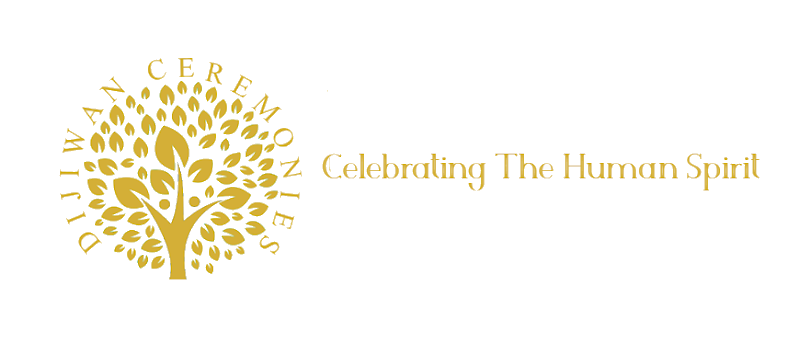A List of Wedding Roles
Introduction
Weddings come in all manner of configurations, so the roles you may have to fill for your special day may vary. In the list that follows I'm outlining the most common key roles for a full, traditional wedding ceremony. You might have some, all, or none of these. It's also possible that a role or two will be invented to meet your specific needs. Also note that in what follows a mixed-gender marriage is in view, but all the roles can easily be rearranged for a same-gender marriage. As you're reading you'll likely think of people who can play these parts, and that's the real point.Maid and Matron of Honor and Bridesmaids
A maid of honor is a single friend, and a matron of honor married. Whichever is chosen, this person will accompany the bride through wedding preparation, organizing the bachelorette party if there will be one, and being there will the bride through her wedding shower and similar events. The bridesmaids stand by her side at the wedding and have the responsibility to help the bride look and feel her best throughout the day of the wedding.
Best Man and Groomsmen
The best man and groomsmen have pretty similar roles to the maid/matron of honor and bridesmaids. They accompany the groom through preparing for the wedding and help get him psyched up. The best man organizes the bachelor party, if there will be one, and also usually is responsible for the rings.
Ushers
Ushers will be friends who help ensure people find their seats and then leave after the ceremony in an orderly fashion. Personally, I always recommend that couples designate one usher to set timing for who goes down the aisle and when. This person will know the plan and signal for flower girls, ring bearer, bride, and whoever else when their time comes to make their way down front during the ceremony. Nerves can make people unsure of when it's their 'turn,' and an usher handling the timing sets people more at ease. You could also have ushers handle program distribution and the guest book.
Ring Bearer
This is one of those roles that's a nice-to-have if there's a little boy who is level-headed enough to carry the rings to the front. I've seen some that were too young turn tail and flee in tears back up the aisle before reaching the altar, so it's best to choose wisely if you're going to have a ring bearer.
Flower Girl
I don't know what it is, but little girls seem to typically handle themselves better in this role than little boys do as ring bearers. Still, it can be a good idea to have two flower girls proceeding to the front together for the emotional support. It's also possible that one will become cranky or tearful, which is fine since the other can still go forward tossing petals while the other stays behind.
Candle Lighter
In traditional ceremonies there might be a candle lighter, which is someone who goes up prior to the ceremony beginning to ensure all the candles are lit. If there's a unity candle they might be responsible for ensuring that part of the ceremony goes to plan, although that's not required. People of any age and relationship to the couple can play this part.
Reader
The couple might have passages or poems that are meaningful to them which can be read during the ceremony, and it can be nice to have a reader designated for this honor rather than leaving it to the officiant. Family or friends who are admired and respected are perfect for the job, especially if they are older.
Invocator
In a Humanist or non-religious wedding it is uncommon to have prayer. However, due to family traditions this might be desired. In this case, a trusted religious family member can be given a prayer to read or even deliver one extemporaneously. This latter is not recommended because for some folks it's easy to go off-script, and also nerves can make it hard for some to organize their thoughts on the spot. This all depends on the person and what the couple knows of their aptitudes. Alternatively, while there is no such thing as 'Humanist prayer,' a statement that draws people's focus into the meaning and import of the day can also be written and delivered by the invocator. If your officiant is endorsed by The Humanist Society they should be able to assist in composing a non-religious invocation in the place of prayer.
Officiant
You have options when it comes to the officiant, and it's important to think carefully about who will be the best person for this essential role. It can be a priest, minister, or rabbi, of course. You could hire a professional officiant who focuses on this type of event. Maybe it's a judge or other authorized civil authority. While it's becoming increasingly popular to have a friend or family member get ordained online just to officiate the wedding, and this can be quite meaningful, there needs to be great certainty that his person is fit for the role. An officiant should be able to help the couple plan the ceremony and prepare the script, as well as know how to roll with anything that might come up on the wedding day. While a lay person can certainly handle this is they have the right temperament, a safer bet is finding someone with training and experience.
Conclusion
As I said at the outset, you likely have people in mind for each of these parts. You're going to want people who were important in the lives of the couple, and in their shared love story. And again, all of the above can be modified to fit whatever your situation requires. What matters most is that you are able to exchange your vows and make a commitment in a way that is meaningful to you.

